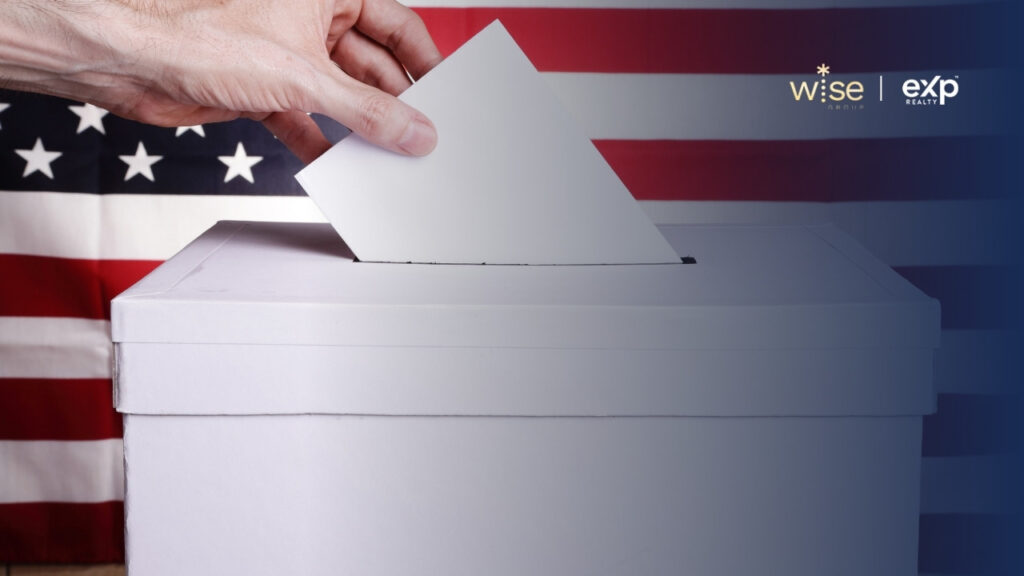Presidential election years in the United States often generate an atmosphere of uncertainty that impacts various economic sectors, including the real estate market. Although the effects can vary depending on numerous factors, certain historical trends illustrate how buyers, sellers, and investors react during these periods, and what we might expect based on the outcomes of the 2024 presidential elections.
General Impact of Election Years on the Real Estate Market
Market Uncertainty
During election years, both buyers and sellers tend to be more conservative, postponing major decisions until they have greater clarity regarding the results. This can lead to a temporary slowdown in property transactions. Investors often wait to see how the proposed policies by candidates may affect the real estate market, particularly in areas such as taxation, financing regulations, and economic growth.
Fluctuation in Housing Prices
In election years, the growth of housing prices may slow down or stabilize temporarily due to uncertainty. Buyers may be more inclined to wait, reducing demand and potentially cooling prices. However, once election results are announced and the policies of the new administration become clearer, the market generally resumes its momentum.
Impact on Interest Rates
The U.S. Federal Reserve often plays a key role in the real estate market during election years. Decisions regarding interest rates can be influenced by the economic and political climate. In some cases, if the economy is uncertain, the Fed may opt to keep rates low, benefiting the real estate market by keeping mortgage rates accessible.
What to Expect If Republicans Win in 2024
Historically, Republican administrations tend to favor policies aimed at reducing taxes and regulations. This can have a direct impact on the real estate market in several ways:
Lower Taxes and Benefits for Investors
A Republican victory in 2024 would likely lead to the implementation of more favorable tax policies for property owners and developers, including potential reductions in capital gains taxes and other incentives for real estate investment. This could boost demand for investment properties, especially in sectors like pre-construction and commercial developments.
Deregulation of the Market
Republicans typically advocate for deregulation, which could facilitate the development of new construction and real estate projects. This would be beneficial in areas with housing shortages, as it would encourage an increase in supply.
Increased Support for Foreign Investors
Historically, Republican governments have implemented policies that favor foreign investors, making it more attractive for them to purchase real estate in the U.S. This could result in an uptick in foreign investment in key markets like Florida, which already attracts many international investors, including Mexicans and Colombians.
Potential Reduction in Affordable Housing Programs
While a Republican government may benefit investors, there could be less emphasis on affordable housing programs, potentially leading to reduced assistance for first-time homebuyers or low-income communities.
What to Expect If Democrats Win in 2024
A Democratic government tends to implement policies with a more social focus and wealth redistribution, which can have a different impact on the real estate market:
Focus on Affordable Housing
Democrats typically prioritize the creation of affordable housing. If they win the 2024 elections, we could see an increase in programs supporting housing for low- and middle-income individuals, as well as stricter regulations to limit rising housing prices and rents. Incentives and subsidies for first-time homebuyers are also likely to increase, boosting demand in this market segment.
Increased Regulation in the Industry
A Democratic government might ramp up regulation in the real estate sector, imposing restrictions on developers and possibly raising standards for sustainable energy and environmental compliance. While this could increase construction costs, it may also incentivize the creation of green or sustainable housing.
Possible Tax Increases
Democrats tend to increase taxes, particularly on capital gains and high-income individuals. This could make real estate investors more cautious, as net investment returns could decrease. A tax increase might cool investment in high-value real estate but could redirect interest toward more affordable housing sectors.
Infrastructure Stimulus Programs
A Democratic government could promote infrastructure programs that enhance the value of certain areas, especially urban regions in need of renewal or modernization. These stimuli could lead to increased property values in areas receiving government investment.
Conclusion: What to Expect from the Real Estate Market in 2024
While election years often bring uncertainty, both Republicans and Democrats can positively influence different segments of the real estate market. Republicans typically benefit investors and developers, while Democrats focus on affordable housing and social programs.
The outcome of the 2024 elections will have a direct impact on the real estate market, but ultimately, market fundamentals such as demand, supply, and interest rates will also play a crucial role.




